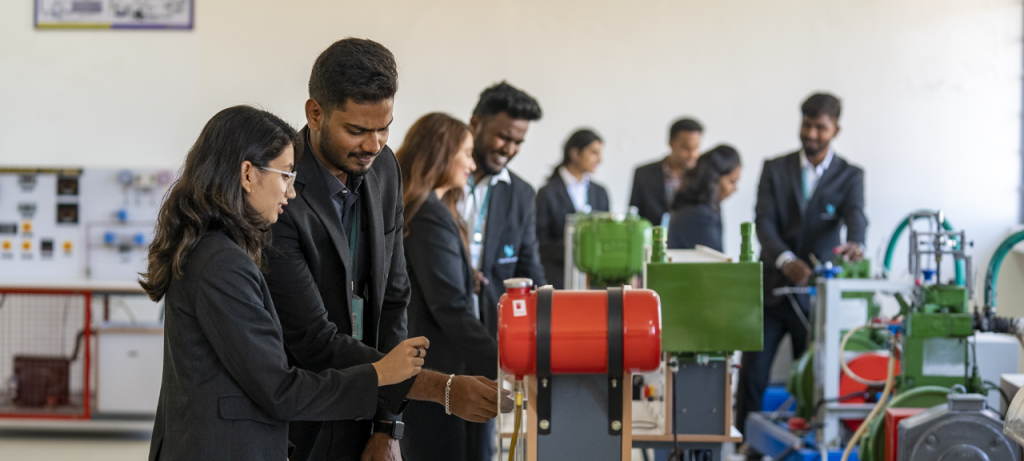FAQs
What is the duration of the BTech course at CMR University?
Four years
What is the admission process for the BTech course at CMR University?
Written test and interview
What is the eligibility criteria for the BTech course at CMR University?
10+2 with physics, chemistry, and mathematics as subjects and a minimum of 45% marks in 10+2. Other equivalent qualifications may also be considered.
Do the computer science course include all the areas of computing?
Yes, it almost includes all the areas of computing. CMR University, one among the top computer science engineering colleges in Karnataka is a good choice for B.tech in CSE course. Our course has network security, data structures, mobile application development, data mining, big data, Artificial intelligence, cryptography, digital forensics, and Data analytics.
Will the course help me secure a stable professional future?
B.Tech in CSE is the best course available to secure a stable professional future. Study B.tech in CSE from one among the top private universities in bangalore for computer science, CMR University. Software and IT industry are the upcoming industries with many innovations. An undergraduate course in the computer science field will help you set forth a strong career foundation.
What set of skills do I need to be a computer science engineer?
The following are the major skills required to be a computer science engineer
- Analytical skills
- Creativity
- Basics of machine learning
- Web development knowledge
- Programming skills
- Critical thinking
- Problem-solving skills
- Data structures
- Algorithms
- Network security basics
- Cryptography basics
- Quick learning abilities.
What job opportunities are there for computer science engineers?
The job opportunities for computer science engineers are:
- Software Developer
- Computer Hardware Engineer
- Web Developer
- Computer Programme
- Game developer
- App developer
What kind of facilities are available in the department of CSE at CMR University?
The department of CSE at CMR University has data structures laboratory, labs for programming with python, a programming for problem-solving lab, a Data structures and algorithms lab, a programming with Java lab, and a database management systems lab. Spacious classrooms with electronic infrastructure for audio-visual teaching aids, rapid prototyping labs, and a conference room for discussions.
What is the admission process for B.Tech in CSE?
Log in to the portal from our website, download the admission form and fill it. You can either submit the form in person at the college campus or submit it online after payment of application fees. Further you will receive a call for interview if you are shortlisted.
Are computer science engineers in demand?
Yes , Computer science engineers are in high demand. With the growing automation and AI technology, there is a huge need for computer science engineers for analysing the field of big data and data analytics. The subject is the base of many sub-divisions in engineering which creates a huge demand for computer science engineers.
Is there any placement cell/support provided for job search?
Yes, at CMR University we have a dedicated placement cell that comprises experienced professionals from various fields of engineering to train the students to attend the placement interviews. We also help the students develop their soft skills and leadership skills from the first year through various modules.
Does the BTech course at CMR University offer any practical training or internship opportunities?
Yes, the BTech course at CMR University provides students with practical training and internship opportunities as part of the curriculum.
























